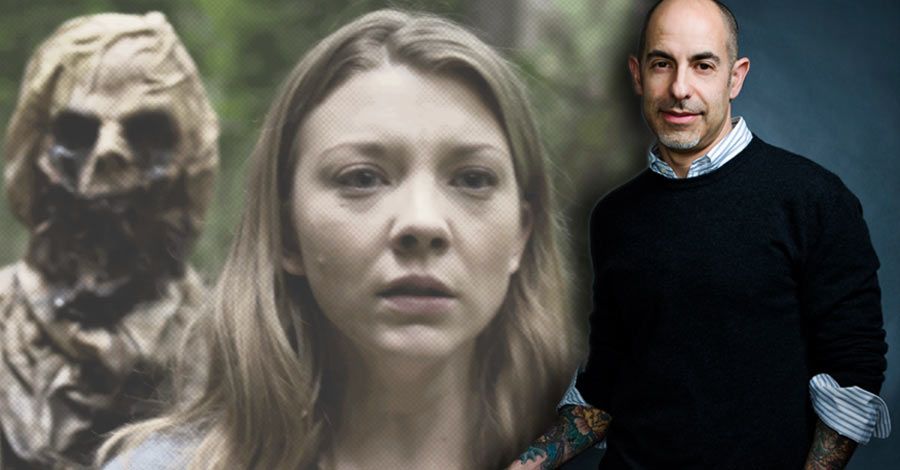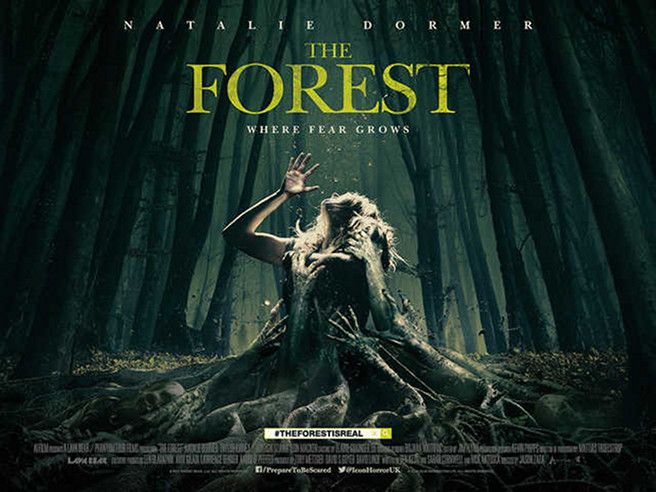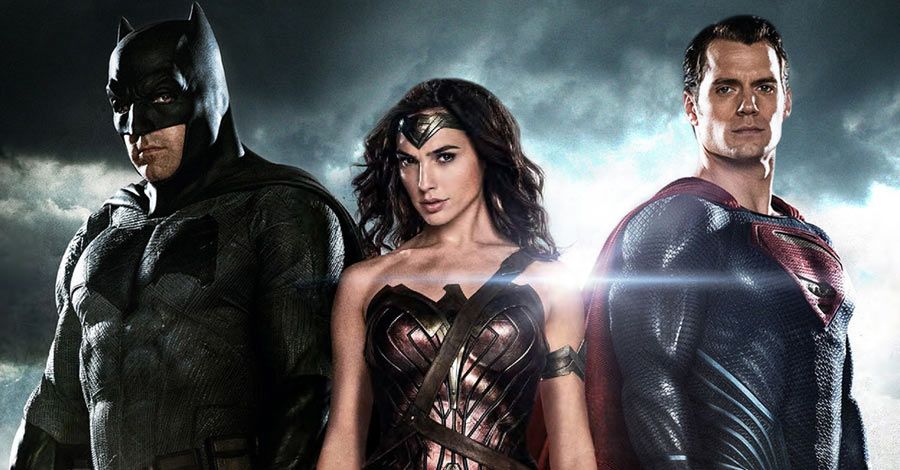It's fairy commonplace for a screenwriter to avoid real work and let a few moments of distraction lead to a long detour down an Internet rabbit's hole of unveiled information. But relatively few come back from the procrastinating mystery tour armed with enough fascinating material to launch an entirely separate film. If you're David S. Goyer, responsible for Christopher Nolan's "Dark Knight" trilogy, "Man of Steel," and the Starz original series "Da Vinci's Demons," you're used to being the exception to the rule.
That's precisely what happened when one of Goyer's web-jaunts led him to discover the real life story of Japan's Aogikahara, or "Suicide Forest," a massive woodland region at the base of Mt. Fuji that due to its evocative associations in Japanese folklore and the nation's long cultural traditions of honorable self-sacrifice has become the second most popular place for suicides and attempted suicides in the world. In some years, the body count has exceeded 100.
Inspired by the macabre phenomenon, Goyer put on his producer's hat to build a fictionalized horror film around the legends surrounding the location, collaborating with a team of screenwriters and director Jason Zada -- an ad industry sensation known for creations like OfficeMax's "Elf Yourself" and the horror themed Facebook app "Take This Lollipop" -- to craft "The Forest." Goyer took Spinoff Online into his latest creative foray into the horror genre, and also touched on his anticipation for the unveiling of DC Comics' expanding cinematic universe next spring with "Batman v Superman: Dawn of Justice."
Spinoff Online: The phenomenon that you discovered to base this film around, Japan's real-life "Suicide Forest," is as fascinating as any you could have made up. I'm curious: I know you didn't shoot there, but tell me about your visit there and how that informed what you were doing and just the vibe that you found in the actual location as you checked it out.
David S. Goyer:<.b> We didn't film in Tokyo, yeah -- we didn't film in the actual forest. Here's the thing about the forest that's kind of crazy. A couple things: The first thing is, the actual forest isn't that big, but it's incredibly dense and people still get lost in it all the time. People die of exposure. They get lost and wander around for days and can't find their way out. When you look at it from above, it's just not actually that big. I mean, don't get me wrong. It's still ten miles wide or something like that -- maybe it's a little longer -- but it's not like it's a hundred miles across. It's relatively small.
The other thing that's kind of startling about the forest is it's super beautiful and serene. It's not, with the exception of -- obviously we were concerned about coming upon bodies, but as an actual place, it's really beautiful. It's not like you go there and it's like, "Oh my God, this is the scariest place on Earth I've ever been." It's very serene and beautiful.
What did you want to do with the elements of the J-horror genre, as far as working them into this one and also keeping it grounded in the traditional American horror genre? How did you want to mash up those two approaches?
Well, I've always liked J-horror. J-horror has sort of been out of vogue the last maybe half a decade at least. There was that early space with "The Ring" and "The Grudge" and they were trying to do other films like "Pulse." I don't know if you saw that. I think initially people found that stuff just exotic and different. The rhythms were different and alien and exotic also translates as sometimes things being scary.
So this wasn't that difficult to mash up because it's not like we were trying to take a concept that was belonging to Japanese culture, Japanese folklore, and smash it into J-horror. It's a real place in Japan. We weren't exporting something for Japan into America, even like "The Ring." We were going to a real place that exists in Japan and is a real folklore about the location. And because we wanted to tell a story about alienation, about a character who from the moment she steps off the plane is a stranger in a strange land. It just seemed natural to have a westerner show up in that environment.
Natalie Dormer just filled up every frame of film she was in, and she's in a lot of them. Tell me about deciding on her as your lead, how she came aboard the project, and what discovered about her that perhaps you didn't expect out of her during production.
Well, she was our first choice from the beginning. We're all "Game of Thrones" fans. I've been a fan of hers in all sorts of stuff. She was our first choice. She just seemed like she had the right sort of, people new her, but she wasn't over-exposed. She was known to be a really accomplished actress and we knew that if we were going to have a film that was 90% in the movie with just this woman running around in the woods, she had to be really, really good.
We were expecting her to be professional and to have her Is dotted and her Ts crossed, but I think what surprised me, particularly because the character she plays on "Game of Thrones" is kind of so... she's manipulating, but she's always in cloistered, rich environments. I think what surprised us is how physical she got in the film and how anguished she was. All those moments where she's running. The scream that she utters when she falls into the ice cave and twists her ankle, I just think that's an incredibly raw performance that she gave. She kept it up for a long time.
It was a physically torturous and grueling film. We talked about that at the beginning. We said, "Do you know what you're in for?" The very first conversation we had is we said, this is not going to be a fun movie to shoot. We're dumping you in the woods for a good portion of the shoot, and we're in the middle of nowhere and you're going to get cut, and you're going to get scraped, and there's mosquitos everywhere. She was up for it. I love her. I hope I get to do lots of things with her.
As much as comic book material and superheroes have been a part of your career, there's also always been a really strong horror element in the things that you do. I'm curious, what do you want to do with the horror genre as you move forward with your various projects, either as a writer, director, or producer? What do you want to introduce or what elements do you want to uphold in the genre tradition? Where's your head on horror right now?
Well, for me and the consumer, first and foremost, I want to see horror films that scare me, but I also want to see horror films that are provocative, and different and challenging and haunting, and linger with you after the movie's finished.
So I look at the most recent films that I've liked and that I thought just blew me away were "The Babadook" and "It Follows," which now lots of people cite. When I had first seen them, I think I saw them well before they were released, and those films just felt distinctive. In the case of "The Babadook," it's incredibly well-shot and beautifully acted and really compelling. I guess it shares some similarities to "The Forest": you're really not sure up until the very end how much of it is real and how much is not real. The lead character becomes an unreliable narrator. I just look for things that are challenging, that are different.
I think genre works best when it works as an allegory. That's what was so great about "It Follows" being kind of this allegory for sexually transmitted diseases. I think that that's what I tried to do. It was a horror/action film, but that's what I tried to do with "Blade." It very consciously dealt with racial relations, but it also dealt with the AIDS epidemic that was happening at the time. I think when genre works best, whether it be sci-fi or horror, it takes on real issues, but from a sideways angle, and becomes a way to talk about something that if you just talked about it on the surface might feel like you were being preachy.
We're getting close to the point where a project of yours, "Batman v Superman: Dawn of Justice," is about to break open the entire universe of DC Comics superheroes on film. I'm curious, what's exciting to you when we get to that moment in time and we see the DC properties in this tied-in form finally making it to the big screen and more movies spinning out from there? As somebody who's been involved for so long in that world, to get to this moment, what's thrilling for you?
Well, first thing I'll say is I really can't talk very much about that. Warner Bros. wants to do the PR for that post-holidays. I'll just say that it's been an honor to have, growing up as a comic book kid, to have worked on a series of "Batman" films and then worked on "Superman." It was a real honor to have been a part of introducing Wonder Woman to the screen cinematically. That's the troika, and to have been involved, had a hand in all three is -- I mean, for me growing up in Michigan reading comic books, it's a dream come true. In a million years I never could have predicted that I would have been involved in all three, much less one of them. That's been amazing.
"The Forest" opens January 7, 2016 in theaters. "Batman v Superman: Dawn of Justice" is scheduled for release March 25, 2016.



